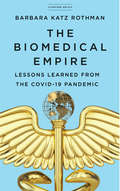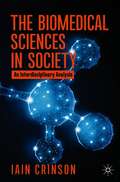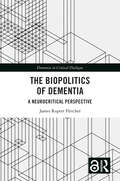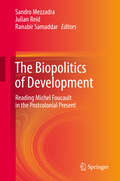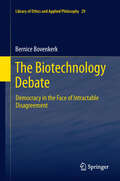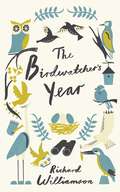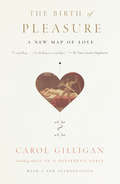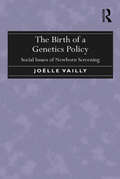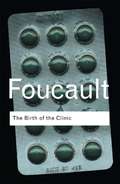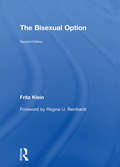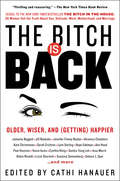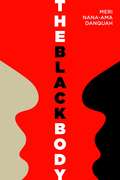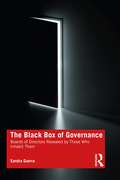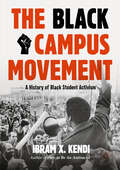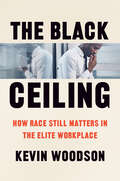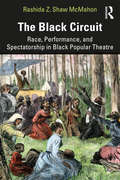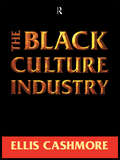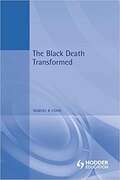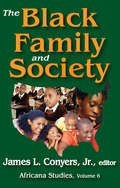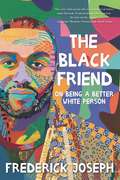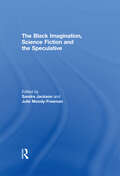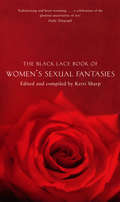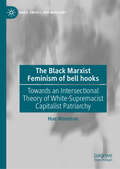- Table View
- List View
The Biomedical Empire: Lessons Learned from the COVID-19 Pandemic
by Barbara Katz RothmanWe are all citizens of the Biomedical Empire, though few of us know it, and even fewer understand the extent of its power. In this book, Barbara Katz Rothman clarifies that critiques of biopower and the "medical industrial complex" have not gone far enough, and asserts that the medical industry is nothing short of an imperial power. Factors as fundamental as one's citizenship and sex identity—drivers of our access to basic goods and services—rely on approval and legitimation by biomedicine. Moreover, a vast and powerful global market has risen up around the empire, making it one of the largest economic forces in the world. Katz Rothman shows that biomedicine has the key elements of an imperial power: economic leverage, the faith of its citizens, and governmental rule. She investigates the Western colonial underpinnings of the empire and its rapid intrusion into everyday life, focusing on the realms of birth and death. This provides her with a powerful vantage point from which to critically examine the current moment, when the COVID-19 pandemic has exposed the power structures of the empire in unprecedented ways while sparking the most visible resistance it has ever seen.
The Biomedical Sciences in Society: An Interdisciplinary Analysis
by Iain CrinsonThis textbook provides a comprehensive introduction to the interdisciplinary field of the Social Studies of Science and Technology (SSST). Over the past two decades, the biomedical sciences have transformed our understanding of the relationship between the social and natural worlds, while its ‘promissory visions’ are seen to offer extraordinary opportunities for economic and social development. But alongside these scientific innovations have emerged new, and frequently unanticipated social, political, bioethical, and legal dilemmas and challenges. This cutting-edge text explores ‘post-genomic’ developments in the field of pharmacogenomics and the prospects for a new ‘precision’ or personalised medicine; the potential of environmental epigenetics to reconfigure the boundaries of the social and natural worlds; the emergence of an array of ‘neuro-disciplines’, seeking to identify the neural basis of a whole range of social and economic behaviours; and the challenges of constructing a coherent and robust governance framework for the conduct of biomedical science research and innovation, responsive to the social and health needs of the whole population.
The Biopolitics of Dementia: A Neurocritical Perspective (Dementia in Critical Dialogue)
by James Rupert FletcherThis book explores how dementia studies relates to dementia’s growing public profile and corresponding research economy. The book argues that a neuropsychiatric biopolitics of dementia positions dementia as a syndrome of cognitive decline, caused by discrete brain diseases, distinct from ageing, widely misunderstood by the public, that will one day be overcome through technoscience. This biopolitics generates dementia’s public profile and is implicated in several problems, including the failure of drug discovery, the spread of stigma, the perpetuation of social inequalities and the lack of support that is available to people affected by dementia. Through a failure to critically engage with neuropsychiatric biopolitics, much dementia studies is complicit in these problems. Drawing on insights from critical psychiatry and critical gerontology, this book explores these problems and the relations between them, revealing how they are facilitated by neuro-agnostic dementia studies work that lacks robust biopolitical critiques and sociopolitical alternatives. In response, the book makes the case for a more biopolitically engaged "neurocritical" dementia studies and shows how such a tradition might be realised through the promotion of a promissory sociopolitics of dementia.
The Biopolitics of Development
by Julian Reid Ranabir Samaddar Sandro MezzadraThis book offers an original analysis and theorization of the biopolitics of development in the postcolonial present, and draws significantly from the later works of Michel Foucault on biopolitics. Foucault's works have had a massive influence on postcolonial literatures, particularly in political science and international relations, and several authors of this book have themselves made significant contributions to that influence. While Foucault's thought has been inspirational for understanding colonial biopolitics as well as governmental rationalities concerned with development, his works have too often failed to inspire studies of political subjectivity. Instead, they have been used to stoke the myth of the inevitability of the decline of collective political subjects, often describing an increasingly limited horizon of political possibilities, and provoking a disenchantment with the political itself in postcolonial works and studies. Working against the grain of current Foucauldian scholarship, this book underlines the importance of Foucault's work for the capacity to recognize how this degraded view of political subjectivity came about, particularly within the framework of the discourses and politics of 'development', and with particular attention to the predicaments of postcolonial peoples. It explores how we can use Foucault's ideas to recover the vital capacity to think and act politically at a time when fundamentally human capacities to think, know and to act purposively in the world are being pathologized as expressions of the hubris and 'underdevelopment' of postcolonial peoples. Why and how it is that life in postcolonial settings has been depoliticized to such dramatic effect? The immediacy of these themes will be obvious to anyone living in the South of the world. But within the academy they remain heavily under-addressed. In thinking about what it means to read Michel Foucault today, this book tackles some significant questions and problems: Not simply that of how to explain the ways in which postcolonial regimes of governance have achieved the debasements of political subjectivity they have; nor that of how we might better equip them with the means to suborn the life of postcolonial peoples more fully; but that of how such peoples, in their subjection to governance, can and do resist, subvert, escape and defy the imposition of modes of governance which seek to remove their lives of those very capacities for resistance, subversion, flight, and defiance.
The Biotechnology Debate
by Bernice BovenkerkThis book grounds deliberative democratic theory in a more refined understanding of deliberative practice, in particular when dealing with intractable moral disagreement regarding novel technologies. While there is an ongoing, vibrant debate about the theoretical merits of deliberative democracy on the one hand, and more recently, empirical studies of specific deliberative exercises have been carried out, these two discussions fail to speak to one another. Debates about animal and plant biotechnology are examined as a paradigmatic case for intractable disagreement in today's pluralistic societies. This examination reveals that the disagreements in this debate are multi-faceted and multi-dimensional and can often be traced to fundamental disagreements about values or worldviews. "One of the acute insights to emerge from this examination is that deliberation can serve different purposes vis-à-vis different types of problem. In the case of deeply unstructured problems, like the modern biotechnology debate, the aim of inclusion is more appropriate than the aim of consensus. This book highlights the importance of political culture and broader institutional settings in shaping the capacity and propensity of citizens to engage in deliberation and the degree to which governments are prepared to relinquish authority to deliberative mini-publics." Robyn Eckersley, University of Melbourne, Australia
The Birdwatcher’s Year
by Richard WilliamsonThis handbook is bursting with tips, facts and folklore to guide you through the birdwatching year. Find out how to identify birds by sight or song; learn about their behaviour, habitats, and breeding and migration habits; and discover how to encourage birds into your garden. Includes handy pages for making your own notes each month.
The Birth of Pleasure
by Carol GilliganThe author of the classic In a Different Voice offers a brilliant, provocative book about love that has powerful implications for the way we live and love today. &“Compelling ... A thrilling new paradigm.&” —The Times Literary SupplementCarol Gilligan, whose In a Different Voice revolutionized the study of human psychology, now asks: Why is love so often associated with tragedy? Why are our experiences of pleasure so often shadowed by loss? And can we change these patterns? Gilligan observes children at play and adult couples in therapy and discovers that the roots of a more hopeful view of love are all around us. She finds evidence in new psychological research and traces a path leading from the myth of Psyche and Cupid through Shakespeare&’s plays and Freud&’s case histories, to Anne Frank&’s diaries and contemporary novels.
The Birth of a Genetics Policy: Social Issues of Newborn Screening
by Joëlle VaillyTesting for genetic diseases or traits is a rapidly developing practice, the most widely used form of testing currently in use being newborn screening. Based on a five-year research project and winner of the Prix ’Le Monde’ for academic research in France, The Birth of a Genetics Policy analyses the three dimensions - scientific, political and moral - of the social issues raised by a policy of screening for the genetic disease of cystic fibrosis amongst babies. Drawing on extensive interview material and observational research, it explores the conditions under which a screening policy is decided upon and implemented, the types of political logic underlying it, and the effects it has on norms and values. Revealing the ties that exist between forms of biomedical knowledge and political techniques, whilst showing how the notion of biomedical abnormality is being extended, this book sheds light on judgements surrounding the idea of the ’quality (of) life’. A rigorous examination of the discourses and practices of medical genetics in the early twenty-first century, The Birth of a Genetics Policy will appeal to sociologists and anthropologists with interests in medicine and the body, evidence-based care and questions of biopolitics and governmentality.
The Birth of the Clinic: An Archaeology Of Medical Perception (Routledge Classics)
by Michel FoucaultIn this remarkable book Michel Foucault, one of the most influential thinkers of recent times, calls us to look critically at specific historical events in order to uncover new layers of significance. In doing so, he challenges our assumptions not only about history, but also about the nature of language and reason, even of truth. The scope of such an undertaking is vast, but by means of his uniquely engaging narrative style, Foucault’s penetrating gaze is skilfully able to confront our own. After reading his words our perceptions are never quite the same again.
The Bisexual Option: Second Edition
by Fritz KleinSoon to be translated into Japanese! The Bisexual Option explores bisexuality, explains the bisexual, and explodes myths surrounding this large “unseen” segment of the population. Now in its second edition, this intriguing book gives an overview of bisexuality. As there is still no book that covers the subject like this one, it is must reading for establishing a contemporary view of bisexuality and those committed to a bisexual lifestyle. Fritz Klein, an experienced psychiatrist and expert in bisexuality and sexual orientation, explains the concept and the variables of sexual orientation and where bisexuality fits.He covers many subjects in the book including: myths of bisexual nonexistence and the “either/or” dilemma intimacy, both emotional and sexual an explanation of bisexuality and the Oedipus Complex definitions and examples of the healthy and troubled bisexual major sociological findings about bisexuality the bisexual in history the bisexual as depicted in the arts factors that will influence bisexuality in the futureThe book helps readers understand where they fit on the sexual orientation continuum. The Bisexual Option aids in explaining who bisexuals are and why they have problems in heterosexual as well as homosexual societies and shows bisexuals that they are not alone. Even helping professionals will find information on this “invisible” but large segment of the population.A variety of readers will want to read The Bisexual Option including the bisexual community and individual bisexuals, the homosexual communities which include many bisexuals, mental health practitioners, psychologists, both students and professionals, university students, married partners of bisexuals, HIV/AIDS workers who wish to become acquainted with how bisexuality affects the risk to the heterosexual community, sexologists, and researchers.
The Bitch Is Back: Older, Wiser, and (Getting) Happier
by Cathi HanauerMore than a decade after the New York Times bestselling anthology The Bitch in the House spoke up loud and clear for a generation of young women, nine of the original contributors are back—along with sixteen captivating new voices—sharing their ruminations from an older, stronger, and wiser perspective about love, sex, work, family, independence, body image, health, and aging: the critical flash points of women’s lives today“Born out of anger,” the essays in The Bitch in the House chronicled the face of womanhood at the beginning of a new millennium. Now, nearly fifteen years later, editor and author Cathi Hanauer has compiled a new batch of passionate, enlightened, often hilarious pieces that are less bitter and resentful, and more confident and content—a provocative and compelling companion collection that captures the spirit of postfeminism with authority, acumen, and panache.Having aged into their forties, fifties, and sixties, these “bitches”—bestselling authors, renowned journalists, and other extraordinary yet also ordinary women—have brilliant and bold things to say. In The Bitch Is Back, Cathi Hanauer, Kate Christensen, Sarah Crichton, Debora L. Spar, Ann Hood, Veronica Chambers, and twenty other powerful writers offer unique views on womanhood and feminism today. Some of the “original bitches” (OBs) revisit their earlier essays to reflect on their previous selves. All reveal how their lives have changed in the intervening years—whether they stayed coupled, left marriages, or had affairs; developed cancer or other physical challenges; coped with partners who strayed, died, or remained faithful; became full-time wage earners or homemakers; opened up their marriages; remained childless or became parents; or experienced other meaningful life transitions.The Bitch Is Back includes:bestselling novelist, memoirist, essayist, food blogger, and OB Kate Christensen on leaving her husband and starting a new life with a much younger man;pseudonymous novelist and OB Hazel McClay on her low-sex marriage (and how she and her husband continue to be happy with it);bestselling novelist and poet Julianna Baggott on life as the sole breadwinner in her family of six;power publisher Sarah Crichton on the joy of sex again after sixty—after being dumped for a younger woman;memoirist Lynn Darling on dealing with sex and sexuality in midlife, after beating breast cancer;bestselling author—and former skinny girl—Ann Hood on not caring about her weight anymore;and nineteen more eye-opening, jaw-dropping, truth-telling, no-holds-barred essays about what it really means to be a woman of substance today.As a “new wave” of feminists begins to take center stage, this powerful, timely collection sheds much-needed light on both past and present, offering understanding, compassion, and wisdom for modern women’s lives, all the while pointing toward the exciting possibilities of tomorrow.
The Black Body
by Meri Nana-Ama DanquahWhat does it mean to have, or to love, a black body? Taking on the challenge of interpreting the black body's dramatic role in American culture are thirty black, white, and biracial contributors--award-winning actors, artists, writers, and comedians--including voices as varied as President Obama's inaugural poet Elizabeth Alexander, actor and bestselling author Hill Harper, political strategist Kimball Stroud, television producer Joel Lipman, former Saturday Night Live writer Anne Beatts, and singer-songwriter Jason Luckett.Ranging from deeply serious to playful, sometimes hilarious, musings, these essays explore myriad issues with wisdom and a deep sense of history. Meri Nana-Ama Danquah's unprecedented collection illuminates the diversity of identities and individual experiences that define the black body in our culture.
The Black Box Society: The Secret Algorithms That Control Money And Information
by Frank PasqualeEvery day, corporations are connecting the dots about our personal behavior-silently scrutinizing clues left behind by our work habits and Internet use. The data compiled and portraits created are incredibly detailed, to the point of being invasive. But who connects the dots about what firms are doing with this information? The Black Box Society argues that we all need to be able to do so-and to set limits on how big data affects our lives. Hidden algorithms can make (or ruin) reputations, decide the destiny of entrepreneurs, or even devastate an entire economy. Shrouded in secrecy and complexity, decisions at major Silicon Valley and Wall Street firms were long assumed to be neutral and technical. But leaks, whistleblowers, and legal disputes have shed new light on automated judgment. Self-serving and reckless behavior is surprisingly common, and easy to hide in code protected by legal and real secrecy. Even after billions of dollars of fines have been levied, underfunded regulators may have only scratched the surface of this troubling behavior. Frank Pasquale exposes how powerful interests abuse secrecy for profit and explains ways to rein them in. Demanding transparency is only the first step. An intelligible society would assure that key decisions of its most important firms are fair, nondiscriminatory, and open to criticism. Silicon Valley and Wall Street need to accept as much accountability as they impose on others.
The Black Box of Governance: Boards of Directors Revealed by Those Who Inhabit Them
by Sandra GuerraIn the world of corporate governance, the board of directors is often viewed as the "black box" of companies: only the board members who are seated at the meeting table understand how this "decision-making machine" works. In this book, a board member with over 25 years’ experience pulls off the lid and shows both how boards have worked and how they could work. This book is grounded in extensive research in three different surveys: one with more than 100 Brazilian directors, another with 340 board members from 40 countries, and a final one with 103 Brazilian directors serving on 238 boards. It also includes interviews with Ira Millstein, Sir Adrian Cadbury, Robert Monks and Mervyn King. The inner-workings of the board of directors are revealed: • What keeps directors awake at night • Obstacles to efficient decision-making • Behavioral dynamics, both within the board and in relation to the management • Pitfalls that arise from individual and group biases Based on these insights and the author’s own consulting and board experience, the book presents a guide to behavioral tools enabling directors and executives to confidently navigate the boardroom, improving interactivity and the efficiency of the decision-making process. Intended for directors and executives who are directly involved in the board's activities, as well as for leaders responsible for strategy implementation, this book provides a behavioral compass for all those interacting with the "black box."
The Black Campus Movement: A History of Black Student Activism (Contemporary Black History)
by Ibram X. KendiIn his first book, published in 2012, Ibram X. Kendi provided the first national study of when Black students organized, demanded, and protested against racism in almost every US State between 1965 and 1972. The book illuminated the complex context and prehistory for one of the most transformative educational movements in American history. Based on records from more than three hundred colleges and universities, this authoritative study is essential to understanding modern American higher education.In this second edition, with a new Preface and updates throughout the text, Dr. Kendi reminds us that the antiracist higher education that the students in these pages fought for has yet to be achieved. Referring to this book as “foundational” to his antiracist research and thought, Kendi challenges us to see the parallels between then and now, and to embody the cause anew.
The Black Ceiling: How Race Still Matters in the Elite Workplace
by Kevin WoodsonA revelatory assessment of workplace inequality in high-status jobs that focuses on a new explanation for a pernicious problem: racial discomfort. America’s elite law firms, investment banks, and management consulting firms are known for grueling hours, low odds of promotion, and personnel practices that push out any employees who don’t advance. While most people who begin their careers in these institutions leave within several years, work there is especially difficult for Black professionals, who exit more quickly and receive far fewer promotions than their White counterparts, hitting a “Black ceiling.” Sociologist and law professor Kevin Woodson knows firsthand what life at a top law firm feels like as a Black man. Examining the experiences of more than one hundred Black professionals at prestigious firms, Woodson discovers that their biggest obstacle in the workplace isn’t explicit bias but racial discomfort, or the unease Black employees feel in workplaces that are steeped in Whiteness. He identifies two types of racial discomfort: social alienation, the isolation stemming from the cultural exclusion Black professionals experience in White spaces, and stigma anxiety, the trepidation they feel over the risk of discriminatory treatment. While racial discomfort is caused by America’s segregated social structures, it can exist even in the absence of racial discrimination, which highlights the inadequacy of the unconscious bias training now prevalent in corporate workplaces. Firms must do more than prevent discrimination, Woodson explains, outlining the steps that firms and Black professionals can take to ease racial discomfort. Offering a new perspective on a pressing social issue, The Black Ceiling is a vital resource for leaders at preeminent firms, Black professionals and students, managers within mostly White organizations, and anyone committed to cultivating diverse workplaces.
The Black Ceiling: How Race Still Matters in the Elite Workplace
by Kevin WoodsonA revelatory assessment of workplace inequality in high-status jobs that focuses on a new explanation for a pernicious problem: racial discomfort. America’s elite law firms, investment banks, and management consulting firms are known for grueling hours, low odds of promotion, and personnel practices that push out any employees who don’t advance. While most people who begin their careers in these institutions leave within several years, work there is especially difficult for Black professionals, who exit more quickly and receive far fewer promotions than their White counterparts, hitting a “Black ceiling.” Sociologist and law professor Kevin Woodson knows firsthand what life at a top law firm feels like as a Black man. Examining the experiences of more than one hundred Black professionals at prestigious firms, Woodson discovers that their biggest obstacle in the workplace isn’t explicit bias but racial discomfort, or the unease Black employees feel in workplaces that are steeped in Whiteness. He identifies two types of racial discomfort: social alienation, the isolation stemming from the cultural exclusion Black professionals experience in White spaces, and stigma anxiety, the trepidation they feel over the risk of discriminatory treatment. While racial discomfort is caused by America’s segregated social structures, it can exist even in the absence of racial discrimination, which highlights the inadequacy of the unconscious bias training now prevalent in corporate workplaces. Firms must do more than prevent discrimination, Woodson explains, outlining the steps that firms and Black professionals can take to ease racial discomfort. Offering a new perspective on a pressing social issue, The Black Ceiling is a vital resource for leaders at preeminent firms, Black professionals and students, managers within mostly White organizations, and anyone committed to cultivating diverse workplaces.
The Black Circuit: Race, Performance, and Spectatorship in Black Popular Theatre (Sociology Re-Wired)
by Rashida Z. McMahonThe Black Circuit: Race, Performance, and Spectatorship in Black Popular Theatre presents the first book-length study of Chitlin Circuit theatre, the most popular and controversial form of Black theatre to exist outside the purview of Broadway since the 1980s. Through historical and sociological research, Rashida Z. Shaw McMahon links the fraught racial histories in American slave plantations and early African American cuisine to the performance sites of nineteenth-century minstrelsy, early-twentieth-century vaudeville, and mid-twentieth-century gospel musicals. The Black Circuit traces this rise of a Black theatrical popular culture that exemplifies W. E. B. Du Bois’s 1926 parameters of "for us, near us, by us, and about us," with critical differences that, McMahon argues, complicate our understanding of performance and spectatorship in African American theatre. McMahon shows how an integrated and evolving network of consumerism, culture, circulation, exchange, ideologies, and meaning making has emerged in the performance environments of Chitlin Circuit theatre that is reflective of the broader influences at play in acts of minority spectatorship. She labels this network the Black Circuit.
The Black Culture Industry
by Ellis CashmoreCashmore's controversial study argues that black culture has been converted into a commodity, usually in the interests of white owned corporations. Using detailed studies of the marketing of Motown, Michael Jackson and the Artist Formerly Known as Prince, Cashmore suggests that inflating the significance of this commodified 'black culture' may actually be counter-productive in the struggle for racial justice.
The Black Death Transformed: Disease And Culture In Early Renaissance Europe (A Hodder Arnold Publication)
by Samuel K. CohnThe Black Death in Europe, from its arrival in 1347-52 through successive waves into the early modern period, has been seriously misunderstood by historians. This revolutionary account provides compelling evidence that the Black Death could have been almost any disease other than the rat-based bubonic plague whose bacillus was discovered in 1894. Since the late nineteenth century, the rat and flea have stood wrongly accused as the agents of transmission and historians and scientists have uncritically imposed the epidemiology of modern plague on the past. Unshackled from this misconception, The Black Death Transformed returns to its subject afresh, using sources spread across a huge geographical tract, from Lisbon to Uzbekistan, Sicily to Scotland and more than 40,000 death documents (from last wills and testaments to the earliest surviving burial records), over 400 chronicles, 250 plague tracts, 50 saints' lives, merchant letters and many more. These sources confirm the terror of the medieval plague, the rapidity of its spread, and the utter despondency left in the wake of its first strike. But they also point to significant differences between the medieval and modern bubonic plague, none more significant than the ability of humans to acquire natural immunity to the former but not the latter.
The Black Family and Society: Africana Studies (Africana Studies)
by Jr. ConyersThis volume focuses on the black family in the United States and the social forces and issues that affect it, including education, healthcare, racism, poverty, and politics. It examines the effects of these social forces on individuals as well as families.Contributions are varied. "A Biscuit for a Letter" examines education in the antebellum South. "Black Intellectuals on Trial" and "Africans' Perspectives on Race in the US" both analyse the role of race and racism in America. "Feminization of Poverty and the Black Family" illustrates the double burden of race and gender borne by black women. "It's Gotta Be Some Drama!" analyses the televised depiction of black colleges and universities. "African-centred Research Frameworks" studies the importance of cultural awareness in academia. "Work to Be Done" recounts the activism of black women in the Democratic Party.This volume offers an interdisciplinary approach to study of the black family in the United States, taking into account the forces of the larger society that influence it. The Black Family and Society is the most recent volume in Transaction's Africana Studies series.
The Black Friend: On Being a Better White Person
by Frederick JosephThis book calls up race-related anecdotes from the author’s past, weaving in his thoughts on why they were hurtful and how he might handle things differently now. Each chapter features the voice of at least one artist or activist, including Angie Thomas, author of The Hate U Give; April Reign, creator of #OscarsSoWhite; Jemele Hill, sports journalist and podcast host; and eleven others. Touching on everything from cultural appropriation to power dynamics, “reverse racism” to white privilege, microaggressions to the tragic results of overt racism, this book serves as conversation starter, tool kit, and invaluable window into the life of a former “token Black kid” who now presents himself as the friend many readers need. Backmatter includes an encyclopedia of racism, providing details on relevant historical events, terminology, and more.
The Black Imagination, Science Fiction and the Speculative
by Sandra Jackson Julie Moody-FreemanThis book expands the discourse as well as the nature of critical commentary on science fiction, speculative fiction and futurism – literary and cinematic by Black writers. The range of topics include the following: black superheroes; issues and themes in selected works by Octavia Butler; selected work of Nalo Hopkinson; the utopian and dystopian impulse in the work of W.E. B. Du Bois and George Schuyler; Derrick Bell’s Space Traders; the Star Trek Franchise; female protagonists through the lens of race and gender in the Alien and Predator film franchises; science fiction in the Caribbean Diaspora; commentary on select African films regarding near-future narratives; as well as a science fiction/speculative literature writer’s discussion of why she writes and how. This book was published as a special issue of African Identities: An International Journal.
The Black Lace Book of Women's Sexual Fantasies (Black Lace Book Of Women Sexual Fantasies #3)
by Kerri SharpThe Black Lace Book of Women's Sexual Fantasies reveals the most private thoughts of hundreds of women. Here are sexual fantasies which on first sight appear shocking or bizarre - such as the bank clerk who wants to be a vampire and the nanny with a passion for Darth Vader.Kerri Sharp investigates the recurrent themes in female fantasies and the cultural influences that have determined them: from fairy stories to cult TV; from fetish fashion to historical novels.
The Black Marxist Feminism of bell hooks: Towards an Intersectional Theory of White-Supremacist Capitalist Patriarchy (Marx, Engels, and Marxisms)
by Hue WoodsonThis book explores bell hooks' trajectory of work and cohesiveness of thought about the meaning and meaningfulness of black womanhood in terms of a Black Marxist feminism, which uniquely confronts the dimensions of feminism and womanism; the relations between the secular and the religious; the problems of gender and sexism; and the structural and systemic issues of oppression, domination, white supremacy, and capitalism. In making sense of black womanhood in its philosophical, social, cultural, institutional, and historical complexities, hooks' Black Marxist feminism constructs an intersectional theory about what hooks describes as white supremacist capitalist patriarchy. In this sense, hooks' Black Marxist feminism conceptualizes the ways and means by which white supremacist capitalist patriarchy imposes intersectional predicaments upon black womanhood, drawing foundationally on Karl Marx and Fredrich Engels, working within the purview of a host of Marxisms in Antonio Gramsci, Louis Althusser, Karl Kautsky, Nikolai Bukharin, and Georgi Plekhanov, and speaking to the Marxist proclivities of Cedric Robinson, Cornel West, Charles W. Mills, James H. Cone, Stuart Hall, and Angela Y. Davis.
